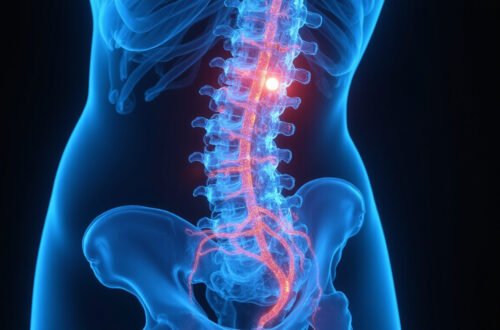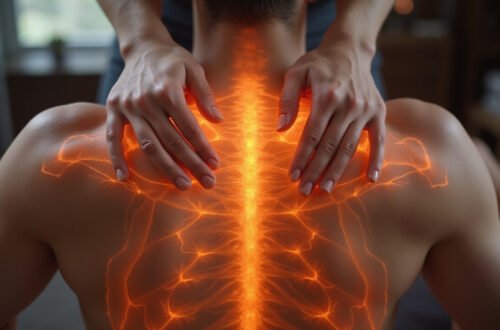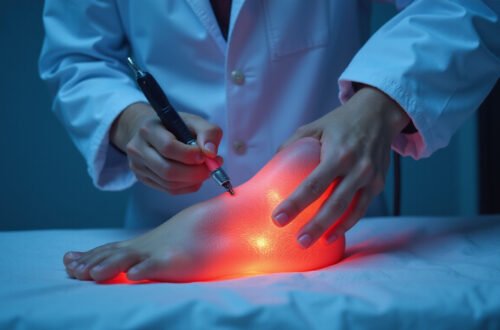Chronic lower back pain is a widespread issue affecting millions of people worldwide. One of the most effective ways to manage and alleviate this persistent discomfort is through lumbar physical therapy. This specialized form of therapy focuses specifically on the lumbar region—the lower portion of the spine—and involves tailored exercises and techniques designed to improve mobility, reduce pain, and strengthen supporting muscles.
In this article, we will explore various lumbar physical therapy techniques that can be utilized to relieve chronic lower back pain, helping you regain function and improve your quality of life.
Understanding Lumbar Physical Therapy
Lumbar physical therapy is a subset of physical therapy dedicated to treating conditions related to the lower back, including muscle strain, disc herniation, spinal stenosis, and degenerative disc disease. The primary goal of this therapy is to reduce pain and improve the function of the lumbar spine.
By targeting the root causes of lower back pain, such as muscular imbalances and poor posture, lumbar physical therapy helps patients develop better spinal alignment and movement patterns. Early involvement in lumbar physical therapy can often prevent surgery and decrease reliance on medications.
Key Lumbar Physical Therapy Techniques
Several lumbar physical therapy techniques can be applied, depending on the severity of pain and specific patient needs. Here are the most commonly used methods:
1. Therapeutic Exercises
Therapeutic exercises form the cornerstone of lumbar physical therapy. These exercises are designed to:
- Strengthen core and lower back muscles
- Improve flexibility and range of motion
- Correct posture and spinal alignment
Examples include pelvic tilts, bridges, lumbar extensions, and gentle stretches targeting the hamstrings and hip flexors.
2. Manual Therapy
Manual therapy consists of hands-on treatments performed by skilled therapists to mobilize joints and soft tissues. Techniques include:
- Spinal mobilization and manipulation to improve vertebral alignment
- Myofascial release to reduce muscle tension and trigger points
- Soft tissue massage to increase blood circulation and decrease pain
Manual therapy is especially beneficial in reducing stiffness and promoting relaxation in tense lumbar muscles.
3. Traction Therapy
Lumbar traction applies gentle pulling forces to the lower spine, which helps to:
- Decompress the spinal discs
- Reduce nerve root irritation
- Minimize pressure on spinal joints
This method is often used to relieve symptoms caused by disc herniations and sciatica.

4. Postural Training and Ergonomics
Poor posture and improper ergonomics can exacerbate lower back pain. A lumbar physical therapy program often includes:
- Education on correct sitting, standing, and lifting techniques
- Training to maintain neutral spine alignment during daily activities
- Recommendations for ergonomic adjustments at work and home
Improving posture reduces the strain on the lumbar spine and promotes long-term pain relief.
5. Heat and Cold Therapy
Application of heat and cold can assist lumbar physical therapy by:
- Relaxing muscles and increasing blood flow with heat packs
- Reducing inflammation and numbing painful areas with cold packs
These therapies are typically used as adjuncts to therapeutic exercises and manual therapy.
Sample Lumbar Physical Therapy Exercise Routine
Here is a simple, effective exercise routine that demonstrates how lumbar physical therapy targets chronic lower back pain:
-
Pelvic Tilts – Lie on your back with knees bent, flatten your lower back towards the floor by tightening your abdominal muscles. Hold for 5 seconds and release. Repeat 10-15 times.
-
Bridges – From the same starting position, lift your hips off the ground until your body forms a straight line from shoulders to knees. Hold for 5 seconds, then lower down slowly. Repeat 10-15 times.
-
Cat-Camel Stretch – On hands and knees, alternate arching your back towards the ceiling (cat) and dipping it towards the floor (camel). Move slowly between positions for 1-2 minutes.
-
Hamstring Stretch – Lie on your back and raise one leg, holding the back of the thigh with both hands. Keep the leg straight and hold the stretch for 20-30 seconds. Repeat with the other leg.
-
Bird Dog – On hands and knees, extend one arm forward and the opposite leg back, holding balance for 5 seconds. Alternate sides and repeat 10 times each.
Consistency with these exercises, combined with professional lumbar physical therapy, can significantly improve lower back pain symptoms.
Frequently Asked Questions About Lumbar Physical Therapy
What conditions can lumbar physical therapy treat?
Lumbar physical therapy is highly effective for treating conditions such as chronic lower back pain, herniated discs, spinal stenosis, muscle strains, and sciatica. It addresses pain sources and improves spine function.
How long does lumbar physical therapy take to relieve chronic lower back pain?
The duration varies based on the severity and underlying cause of pain, but many patients experience noticeable improvement within 4 to 8 weeks of consistent therapy. Ongoing exercises may be recommended to maintain benefits.
Is lumbar physical therapy safe for all ages?
Yes, lumbar physical therapy is generally safe for people of all ages. Techniques and exercises are adapted to individual needs and physical capabilities to ensure safety and effectiveness.
Expert Insight and Research
According to the American Physical Therapy Association (APTA), physical therapy is often the preferred first-line treatment for chronic lower back pain, reducing the need for opioid prescriptions and invasive surgeries (source). Patients who engage in lumbar physical therapy benefit not only from pain relief but also from improved quality of life and enhanced physical function.
Final Thoughts: Take Control of Your Lower Back Pain Today
Chronic lower back pain does not have to control your life. With targeted lumbar physical therapy techniques, you can reduce pain, increase mobility, and restore strength to your lower back. Whether through therapeutic exercises, manual therapy, traction, or posture training, these strategies offer a natural and effective approach to managing your pain.
If you suffer from persistent lower back pain, consult with a licensed physical therapist to design a personalized lumbar physical therapy program. Taking action now can prevent future complications and help you regain your freedom of movement.
Don’t wait—start your journey toward a pain-free life today with lumbar physical therapy! Contact your local physical therapy clinic or healthcare provider to schedule an evaluation and begin healing your lower back.






